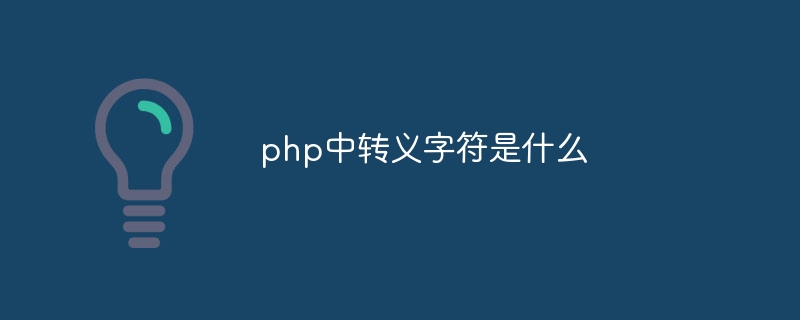Home >Backend Development >PHP Tutorial >What are escape characters in php
What are escape characters in php
- 下次还敢Original
- 2024-04-27 11:12:501245browse
The escape character in PHP is backslash (\), its functions include: representing special characters, such as double quotes and single quotes. Terminates a newline, forcing the string to continue within the same line. Specify a hexadecimal or octal value. Indicates special characters in regular expressions.

Escape Characters in PHP
The escape character is a special character that is used to indicate its The characters after have a special meaning rather than their literal meaning. In PHP, the escape character is backslash (\).
The role of escape characters
Escape characters are mainly used for the following purposes:
- represents special characters: Escape characters can be used to represent some characters that usually have special meanings, such as double quotes ("), single quotes ('), and backslash (\) itself.
- Terminating newline: The escape character can be used to terminate a line of string and force it to continue within the same line.
- Specify a hexadecimal or octal value: The escape character can be used to specify a hexadecimal value. System or octal value.
- Indicates a regular expression: escape characters can be used to indicate
##common special characters. Escape Sequences
Some common escape sequences in PHP include:- \n
: Newline - \t
: tab character - \\
: backslash - \'
: single quote - \"
: double quotes
Usage examples
Here are some examples of using escape characters:<code class="php">echo "This is a \"special\" character.";</code>
<code class="php">$string = "Line 1\nLine 2";</code>
<code class="php">$value = "\x3F"; // 表示十六进制值 3F</code>
The above is the detailed content of What are escape characters in php. For more information, please follow other related articles on the PHP Chinese website!

